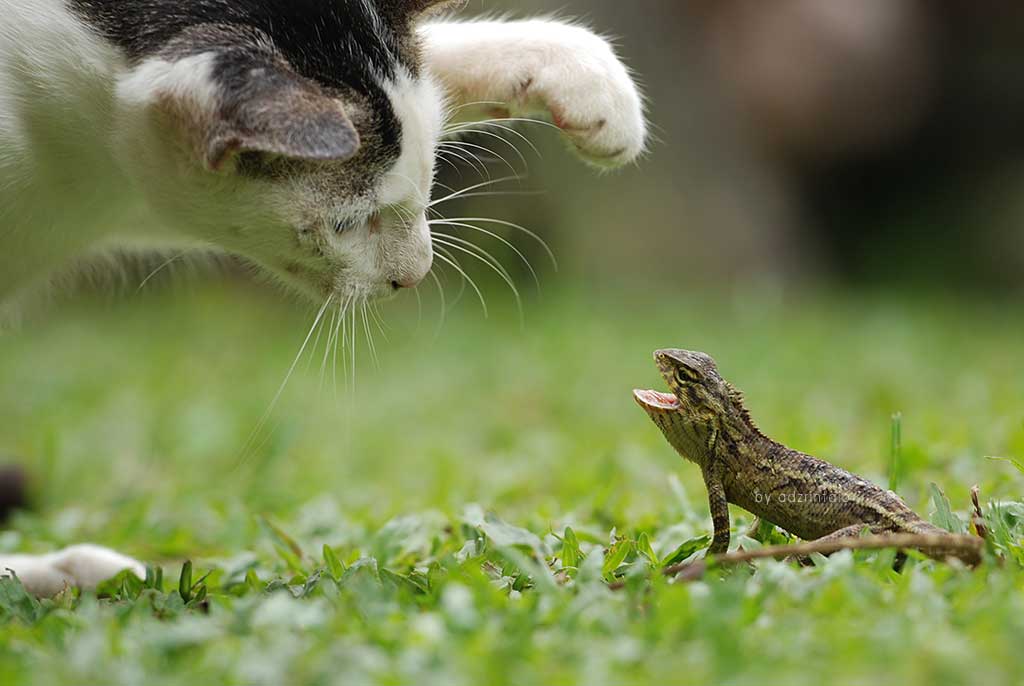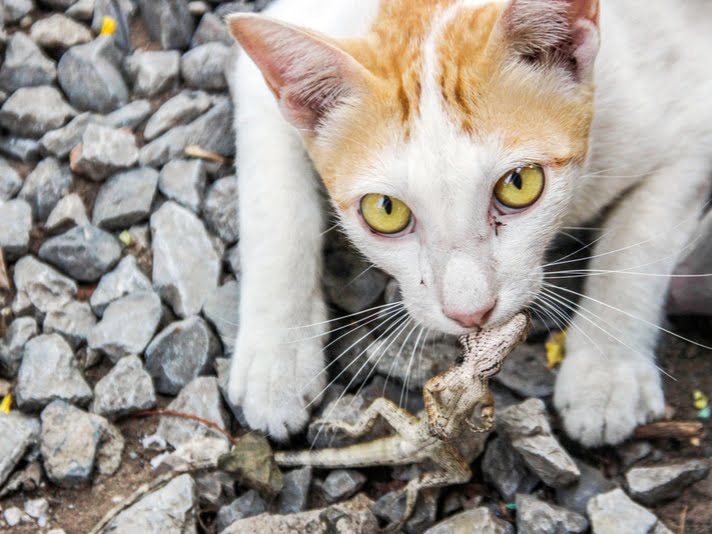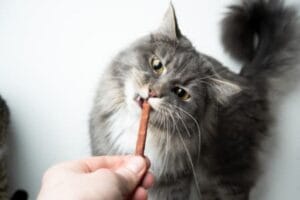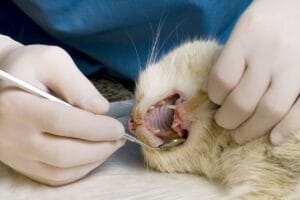The Truth About Cats Eating Lizards: Is It Safe?

Cats are curious creatures that love to hunt and explore their surroundings. As a result, it’s not uncommon to see cats eating lizards. However, as a pet owner, you may be wondering if this behavior is safe for your feline companion. In this article, we’ll explore the truth about cats eating lizards and provide you with important information to help you understand the potential risks and benefits.
Why Do Cats Eat Lizards?
Cats have an innate hunting instinct, which makes them natural predators that enjoy chasing and catching creatures like lizards. While eating a lizard may seem harmless, it can actually pose risks to a cat’s health. For instance, certain lizards are poisonous, and the cat may have difficulty digesting them.
Even indoor cats are not immune to encountering lizards that can sneak into the house. When cats come across lizards, they often view them as a fun toy to play with and may end up eating them. Ideally, the cat would simply consume the lizard and move on, without any issues.
However, two worst-case scenarios can occur:
- The lizard may be poisonous as it can harbor the bacteria Salmonella, leading to symptoms of toxicity such as shaking, coma, drooling, unusual bathroom patterns, foaming at the mouth, vomiting, diarrhea, lack of appetite, pale or yellow gums, among others.
- Cats can also ingest parasites like liver fluke that live on or inside the lizard, leading to severe digestive problems. Liver fluke is prevalent in the United States and Hawaii, takes 8-12 weeks to mature, and can migrate to the gallbladder and liver, causing severe inflammation.
The Risks of Lizard Consumption in Cats

Before we delve into the safety of cats eating lizards, it is important to understand the potential dangers that come with it. Lizards can carry various diseases, parasites, and toxins that can be harmful to your cat’s health. For example, lizards may carry salmonella, a type of bacteria that can cause food poisoning in cats and humans. They may also carry ticks or fleas, which can transmit diseases to your cat.
Moreover, some lizards have developed a defense mechanism that releases toxic chemicals when they feel threatened. This mechanism can cause serious harm to cats if they consume the lizard, leading to vomiting, diarrhea, and even death in some cases.
Despite the potential dangers, cats have a natural instinct to hunt small animals, and lizards are no exception. While not all cats will hunt lizards, those that do may be at risk of consuming toxins and parasites that can harm their health. Additionally, consuming lizards can cause blockages in the digestive tract, especially if the lizard is too large to be properly digested.
In rare cases, the consumption of lizards may cause a medical emergency that requires immediate veterinary attention. Symptoms of an emergency may include vomiting, diarrhea, lethargy, and loss of appetite. If you suspect that your cat has consumed a lizard or another small animal, it is important to monitor their behavior closely and seek veterinary care if needed.
How to Prevent Cats from Eating Lizards
Preventing your cat from eating lizards can be a challenging task, especially if your feline friend spends time outdoors. However, there are several measures you can take to reduce the risk of lizard consumption. For example, you can:
- Keep your cat indoors: Keeping your cat indoors is the best way to protect them from potential dangers, including lizards. Indoor cats are less likely to come into contact with small animals and are therefore less likely to hunt or eat them.
- Provide a balanced diet: Providing your cat with a well-balanced diet can help reduce their urge to hunt and consume small animals. A balanced diet that meets your cat’s nutritional needs can also help keep them healthy and prevent health problems that may arise from consuming lizards.
- Offer stimulating toys: Offering your cat stimulating toys can help keep them entertained and reduce their need to hunt small animals. Toys that mimic the movements of lizards, such as wiggly strings or feather toys, can be particularly effective in satisfying your cat’s hunting instincts.
- Monitor outdoor activities: If you allow your cat to spend time outdoors, it is important to monitor their activities closely. Keep an eye out for lizards or other small animals in your yard and consider fencing off certain areas to prevent your cat from hunting.
In Conclusion
While cats may enjoy playing with and even eating lizards, it is important to understand the potential risks associated with this behavior. Lizards can carry diseases, parasites, and toxins that can be harmful to your cat’s health. Therefore, it is important to take measures to prevent your cat from consuming lizards or other small animals. If you suspect that your cat has consumed a lizard or another small animal, be sure to monitor their behavior closely and seek veterinary care if needed. By taking the necessary precautions, you can help keep your cat safe and healthy.


